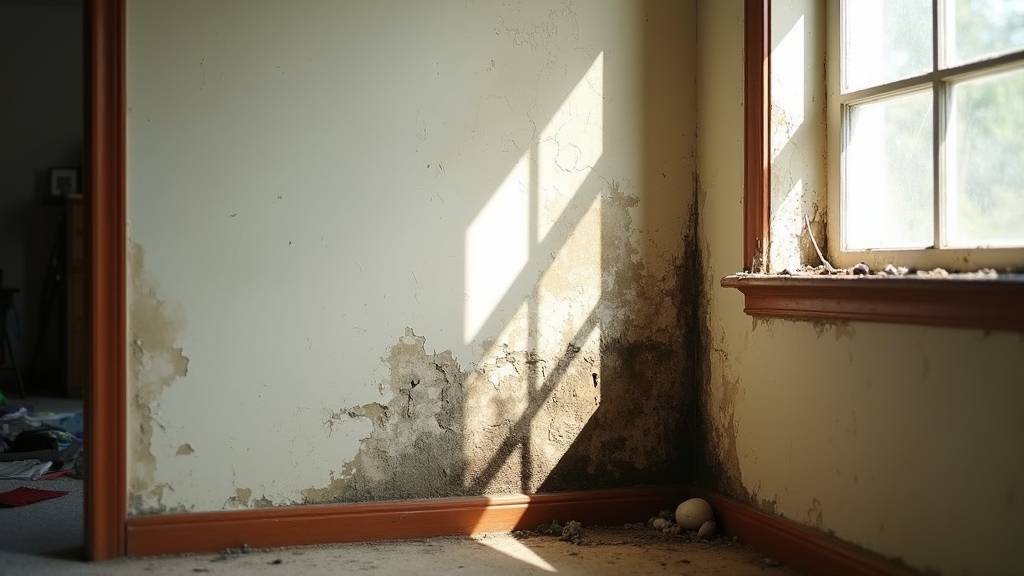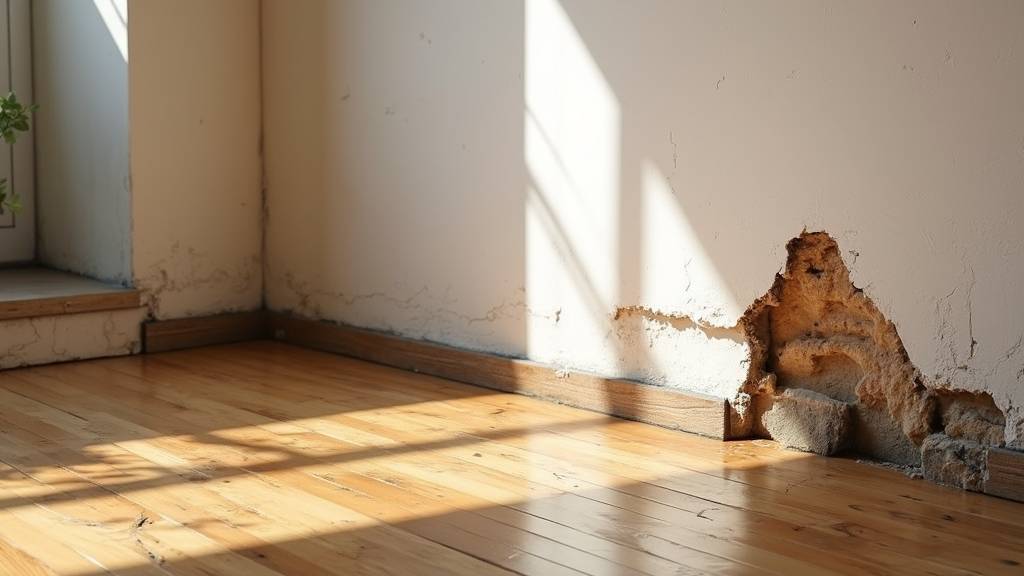Selling a house with water damage can be complicated and stressful. Buyers may hesitate or demand price reductions. Sellers must also follow strict legal requirements during the sale.
If you ignore these rules, you could face lawsuits or angry buyers. Not telling buyers about water damage can ruin your reputation. It can also lead to expensive legal problems that last for years. You must always disclose any known water damage when selling a house, as required by state law.
By being honest and careful, you can protect yourself and avoid future trouble. Following the right steps will help you sell your home smoothly. This blog will guide you through the legal steps to sell a house with water damage safely and legally.
Key Takeaways
- Sellers are legally required to disclose all known current and past water damage, including repairs and ongoing risks, to potential buyers.
- Failure to disclose water damage can result in lawsuits, financial penalties, and possible contract cancellation or required buyback of the property.
- Buyers have the right to conduct inspections, and undisclosed issues found may lead to renegotiations or legal action.
- Comprehensive documentation of repairs, inspections, and insurance claims should be provided to support transparency and legal compliance.
- Disclosure laws vary by state, so sellers must follow state-specific requirements to avoid fines and increased liability.
Understanding Water Damage and Its Impact on Property Value

Water damage can lower your home’s value. It weakens the structure and makes the property less attractive to buyers. Hidden issues like mold or rot can also scare away potential buyers. Addressing water damage promptly with professional help can prevent further deterioration and protect your investment. This is especially important because selling a house as-is typically involves disclosing known issues, which can influence buyer interest.
If water gets into walls or floors, it can cause serious problems. Mold and wood rot may grow without being seen. These issues cost more to fix the longer they are ignored. If you want to sell your home, you should address water damage quickly. Professional inspections and repairs can prevent bigger problems. Fixing damage early helps maintain your home’s value and makes it easier to sell.
State Disclosure Laws for Water Damage
You need to understand your state’s mandatory disclosure requirements regarding water damage, as failure to comply can lead to serious legal and financial penalties. Each state sets its own rules, so you can’t assume what applies in one state will apply in another.
Review your local laws carefully to ensure you disclose all known water issues before listing your property. Additionally, being aware of disclosure laws in Missouri can help you avoid potential legal complications during the sale process. Knowing the home sale regulations specific to Missouri is essential to ensure full compliance and protect yourself from future liabilities.
Mandatory Disclosure Requirements
Every state has its own real estate disclosure laws about water damage. Sellers must follow these rules before listing a property. You must give buyers a disclosure statement about any water damage, repairs, and risks.
Disclosure includes minor or old water damage, even if you fixed it. Not sharing past incidents, even resolved ones, may break the law. Sellers should keep repair records and cost details.
Describe the source, amount, and repairs for any water damage. Clear disclosure protects you from legal problems and builds trust with buyers. If unsure, check your state’s required disclosure forms.
Penalties for Non-Disclosure
Not telling buyers about water damage can lead to legal trouble and money loss. If you keep water issues secret, buyers can sue you. Courts often support buyers if you hid facts or gave false information.
Lawsuits may require you to pay repair costs or buy back the home. State agencies can also fine you for not following disclosure rules. Your reputation may suffer, and future buyers may not trust you.
If you are honest about water damage, you can avoid these problems. Always share details about insurance claims and repairs. Proper records help protect you in case of disputes.
State-by-State Variations
All states have their own rules for property disclosures. The laws about telling buyers about water damage are not the same everywhere. Some states need a detailed written list of any water problems, past or present.
Other states only require you to say something if the buyer asks about water damage. Not following your state’s rules could delay your title transfer or even cancel the sale. Always check what your state expects before selling.
Water damage and repairs can affect your property tax if the value changes. Keep all records of repairs or fixes you make. If you are unsure, talk to a real estate lawyer or your agent.
Knowing your state’s rules can help you avoid legal trouble. Proper disclosure helps your sale go smoothly and stay legal.
Identifying the Source and Extent of Water Damage
To identify the source and extent of water damage, first check where the water started and how far it spread. Inspect walls, ceilings, and floors for any stains or warping. Look in hidden places like basements and crawl spaces for more damage.
Performing a fair cash offer inspection can also help determine the severity of damage and the potential costs for repairs. A licensed inspector can use special tools like moisture meters and thermal cameras for a detailed check. If you skip this step, you could miss serious problems. Missed damage might make insurance claims harder later.
Additionally, understanding your local real estate market can guide you on the urgency and best approach for selling your damaged property. Sellers must avoid surprises that could end a sale or lead to lawsuits.
Proper inspection helps protect your property from further issues. If you disclose damage and fix it, you meet legal and insurance requirements. These actions help protect your legal rights and keep your property’s value stable.
Required Documentation for Past Repairs

You need to gather proof of all completed repairs, including invoices and receipts, to assure buyers the issues were properly addressed. Always keep copies of contractor statements, inspection reports, and any warranty documentation you received for the work. These records not only protect you legally but also build trust with potential buyers.
Having accurate documentation of repairs can expedite the sale process and prevent delays caused by questions or disputes. Additionally, being transparent about your property’s condition can facilitate a smooth and quick sale, especially when dealing with water damage.
Proof of Completed Repairs
Proof of completed repairs is important when you sell your home. Buyers need to see that all problems were fixed. If you do not have proof, buyers may not trust you.
You should collect repair receipts and invoices that show dates and details of each repair. Warranties from contractors show that future issues are covered. If you have before-and-after photos, you can help buyers see the repairs.
If you keep these documents, it is easier to answer buyer questions. Thorough records can help you avoid legal problems. Good documentation can also make your home more attractive to buyers.
Contractor and Inspection Reports
Contractor and inspection reports are important when selling a house with past water damage. These documents show what repairs were done and who did them. Buyers can see that the damage was fixed properly.
You should collect reports from licensed contractors, especially if they handled mold removal. If repairs followed local rules, mention this in your documents. Inspection reports from certified home inspectors also help show the home’s current condition.
If you made insurance claims for water damage, include those records. Add proof that repairs are finished and paid for. Having all these documents can protect you from future disputes.
Warranty Documentation Provided
Warranties are important documents to collect after water damage repairs. These papers show that repairs were done by licensed professionals. They also give buyers peace of mind about the work.
If you fixed your roof or treated for termites, include all warranty papers from the contractors. Buyers want to see these documents before making a decision. Missing warranties can make selling your home harder.
Warranty documents prove you took repairs seriously. They can help prevent arguments about repair quality later. Always add these warranties to your disclosure packet if you want a smooth sale.
Disclosing Mold and Mildew Issues

You must tell buyers about any mold or mildew problems in your home. Laws require you to share both past and current issues. Disclosing this information is not optional. Explain where mold or mildew was found and when you noticed it. List the rooms affected and describe any repairs or cleaning you did. Include dates and details of any professional help or warranties. If you have fixed the problem, provide proof or documents.
Buyers might ask for more inspections if you have had mold or mildew. Being honest helps build trust and avoids future arguments. Additionally, note if water damage has contributed to mold growth, as it may influence the buyer’s decision and the necessary remediation steps. Recognizing how water intrusion impacts the presence of mold can help both sellers and buyers understand the full scope of issues and necessary repairs.
Legal Consequences of Failing to Disclose
If you do not tell buyers about water damage or mold, you may face legal trouble. The law requires you to share all known problems. Buyers can take legal action if you hide these issues.
You might have to pay for repairs or give money back to the buyer. In some cases, the court can cancel the sale. Insurance will not help if you hid problems on purpose.
Buyers can sue you for fraud or breaking your contract. Courts may order you to pay for fixing the damage or even extra penalties. Your reputation could also suffer, making it harder to sell in the future.
Always be honest about any water damage or mold. Full disclosure protects you from serious legal and financial problems. Additionally, reviewing the original sale agreement can help you understand your legal responsibilities and avoid potential liabilities.
Buyer’s Right to Inspection
You should expect buyers to exercise their right to inspection, often including an inspection contingency clause in the purchase agreement. Encourage buyers to hire a qualified professional who can thoroughly assess any water damage and related issues. This step protects both parties by ensuring all defects are documented and addressed before closing.
Additionally, understanding capital gains tax implications can help sellers manage their responsibilities if the property sale results in a profit. Being aware of home inspection processes and how they evaluate water damage can further prepare sellers for potential negotiations and repairs.
Inspection Contingency Clauses
Inspection contingency clauses protect buyers from hidden problems, such as water damage. These clauses allow you to inspect the home before buying. If the inspection finds issues, you can decide how to proceed.
Buyers can ask for cost estimates for repairs if damage is found. You may also ask the seller to fix problems before closing. This helps you avoid unexpected expenses after moving in.
If you find serious water damage, you can check for past insurance claims. This helps you understand any future risks. You can also use the inspection results to renegotiate the price or contract terms.
Never skip your right to a home inspection. It helps keep your investment safe and fair. If you use this clause, you protect yourself from costly surprises.
Professional Assessment Importance
A professional assessment gives clear information about a home’s condition. It offers details that a seller’s disclosure may not include. This step is important for making a safe decision.
Buyers can hire a certified inspector before buying a property. Inspectors check for water damage, environmental risks, and structural problems. Their report shows the real extent of any issues.
If the inspector finds hidden mold or foundation damage, you can ask for repairs or a lower price. This protects your investment. Always consider a professional assessment, especially if the property has possible water damage.
Working With Real Estate Agents
Selling a house with water damage requires legal knowledge and proper disclosures. A real estate agent can help you meet these requirements. If you want to avoid mistakes, working with an agent is important.
An agent will explain local laws and guide you through any needed disclosures. Agents know how to market homes with damage and attract buyers. If there are tenant issues or storm damage, they can handle those situations. Understanding property condition disclosures is also crucial if there are multiple owners involved, as it can affect how the property is sold.
Agents help you avoid legal problems and negotiate with buyers. If you want to protect your interests, trust your agent’s advice. An experienced agent makes the selling process smoother and safer.
Insurance Considerations for Water Damage
Insurance plays a key role when selling a home with water damage. You should check your current insurance policy for any claims made about water damage. If you have filed claims, tell potential buyers, as they will likely learn about them during inspections.
Many insurance policies do not cover floods or long-lasting leaks. If your policy has exclusions, explain these to buyers so they know what to expect. Buyers may also want to see documents about past claims and repairs.
If you have unresolved or denied claims, share these details with buyers. Being open about these issues can affect the sale and buyer confidence. If buyers have questions, answer them clearly and honestly.
Repairing Water Damage Before Listing
Before listing your home, you need to thoroughly assess the extent of the water damage to determine the full scope of necessary repairs. It’s crucial to hire licensed, experienced contractors who can address both visible issues and hidden structural problems. By taking these steps, you not only protect yourself legally but also increase your property’s marketability.
Assessing Repair Scope
Assessing repair scope means checking exactly how much water damage your house has before selling it. You need to know what needs fixing and why. If you skip this step, you may face legal or financial trouble.
Inspect all rooms for water damage, including hidden spots behind furniture or under carpets. Walls, floors, and ceilings often show signs of problems. If you find any damage, note where and how much.
Check if the water has weakened the structure or made the home unsafe. Damage can also make your house less appealing to buyers. Homes in good condition usually sell faster in nice neighborhoods.
Fix the most serious problems first, especially those that affect safety or home value. If you ignore repairs, your home may lose value. Careful repairs help your house compete with others for sale nearby.
Hiring Qualified Contractors
Hiring qualified contractors means choosing the right people to fix water damage in your home. Contractors should be experienced, licensed, and insured. A good contractor helps ensure repairs meet legal and safety standards.
Always check credentials and ask for references before hiring. If you are unsure, ask for proof of insurance and previous work. Some contractors may find hidden issues, like mold or damaged structures.
If you want to avoid future problems, keep records of all repairs. Buyers or inspectors may ask for these documents. Proper work and records can help you sell your home with confidence.
Selling “As-Is” and What It Really Means
Selling your house “as-is” means you are not making any repairs or upgrades before selling. Buyers know they can’t ask you to fix problems. However, you still have legal duties when selling “as-is.”
Sellers must tell buyers about any known water issues or past insurance claims. If you hide problems, you could face legal trouble later. Full and honest disclosure protects you.
If you skip disclosures, you risk lawsuits and extra costs. Buyers may lose trust and lower their offers. Insurance claim histories should also be shared to avoid future disputes.
Navigating Buyer Negotiations Over Damage
If buyers find water damage, they often use it to negotiate. Sellers can handle this by knowing the facts about water damage. Presenting clear information helps buyers understand the real impact. When buyers discover water damage, sellers who provide clear facts can help ease negotiations and clarify the real impact.
Professional assessments and repair estimates are useful. These show the true cost and scope of the issue. If you have made repairs, provide documentation as proof.
Buyers may ask for quick repairs or a lower price. If you have priced the home to match its condition, you can stand firm. Small concessions may help close the sale.
Clear and honest communication builds trust. Transparency about repairs reduces surprises during negotiations. This approach helps both parties feel confident in the deal.
Involving Legal Professionals in the Transaction
Involving a legal professional when selling a house with water damage helps you follow the law. Real estate attorneys make sure you meet all disclosure rules. They also protect your interests throughout the process.
An attorney can help you write clear disclosures and explain inspection results. He or she can address any questions from buyers. If you face lawsuits or insurance claims, an attorney can guide you.
You avoid legal surprises by working with a lawyer. The attorney helps you understand local laws and state rules. This reduces mistakes and arguments.
If you want less stress, consider hiring a legal expert. Legal help gives you confidence during a tricky sale. It can also prevent costly problems later.
Protecting Yourself From Future Liability
To avoid legal problems after selling a house with water damage, always protect yourself from future liability. Full disclosure of all water issues is essential. Hiding problems or only making surface repairs does not free you from responsibility.
Keep detailed records of all repairs and any professional inspections. Signed disclosures in your sales contract should clearly state the damage and repairs. If you do this, buyers cannot claim you hid information later.
If water damage has affected nearby homes, buyers may be extra cautious. You should mention this in your disclosures. Consulting a real estate attorney can help you prepare solid documents.
If nearby homes have had water damage, disclose this to buyers and consult a real estate attorney to ensure thorough documentation.
A lawyer can also guide you on what must be disclosed by law. Taking these steps will help protect your interests after the sale. Proper documentation and honesty are your best safeguards.
Conclusion
If you disclose water damage and document all necessary repairs, you can avoid legal trouble when selling your house. Honest communication protects you and builds trust with buyers. If you need help, speaking with a legal expert is always a good idea.
If you want to sell quickly, you might consider selling to a company that buys houses for cash. This can save you time and avoid the hassle of repairs. Cash buyers often purchase homes as-is, even with water damage.
At Freedom Path Investors, we buy houses for cash in any condition. If you want a fast, easy sale, reach out to us today. Let us help you move forward with peace of mind.







